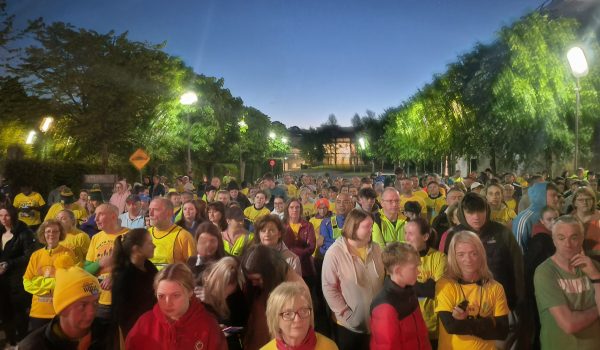
A group of Donegal Doctors have released a statement calling for a Yes vote in the upcoming abortion referendum.
It follows a statement issued by a separate group of GPs in the county in recent days advocating a No vote next month, owing to findings from the Maternal Death Inquiry that deaths in Ireland were extremely rare.
However the Yes doctors believe that the statistics fail to capture the experiences faced by many Irish women and that death is a very low bar by which to set the standard for maternity services.
The statement continues that in 2016, 63 women listed a Donegal address when seeking a termination in England/Wales.
Doctor Noel Sharkey is one of thirteen doctors who have signed the joint statement:
The statement in full:
With a month to go until polling day, a group of Donegal Doctors For Yes have released a statement to the people of Donegal calling for a Yes vote in the upcoming referendum:
We are a group of doctors, working in or from Donegal, who currently work across various medical specialties. We refer to a recently published letter from a group of doctors calling for a no vote. Their statement, that the Eighth Amendment does not put the lives of pregnant women at risk, runs contrary to the testimonies of Ireland’s leading obstetricians, including Prof Peter Boylan (former Master of National Maternity Hospital, Holles St) and Dr Rhona Mahoney (current Master of the National Maternity Hospital, Holles St). These are the current experts in maternal and foetal health and deal with some of the most complicated pregnancies, many of which are dealt with away from rural GP practises because of their complex nature. Furthermore, the Institute of Obstetricians and Gynaecologists, which has representation from all 19 maternity units across the country, has publicly declared its support for the recommendations made by the Oireachtas committee on the Eighth Amendment.
Maternal mortality rates are not an indicator of successful pregnancies. This is evidenced by the countless number of Irish women who are sharing their experiences of having to choose between a forced pregnancy and travelling to the UK to access healthcare. 63 women listed a Donegal address when seeking a termination in England/Wales in 2016. Others have ordered abortion pills online and taken them in their home without any medical supervision. Maternal mortality statistics fail to capture these experiences. Indeed, death is a very low bar by which to set the standard for maternity services in Ireland. The current system has failed these women, many of whom are our sisters, daughters, mothers, aunts, cousins and friends, as well as patients.
Regarding Savita Halappanavar, the author of the independent report into her tragic death, Professor Sabaratnam Arulkumaran, has publicly stated that a timely termination could have saved her life, as has her husband. In addition, her family have urged the Irish electorate to vote Yes in the upcoming referendum. In his report to the Oireachtas Committee on the Eighth Amendment, Professor Arulkumaran said the following:
“She did have sepsis. However, if she had a termination in the first days as requested, she would not have had sepsis. If she had the termination when asked for it, the sepsis would not arise”
“We would never have heard of her and she would be alive today”.
It is becoming clear that a minority of doctors wish to retain the Eighth Amendment. We respect these views and support legislation that will ensure that no doctor will be forced into providing abortion services against their conscience. However, in the face of ever growing medical evidence and the real life stories of Irish women, this ideology can no longer be afforded the constitutional protection it currently relies on. That doctors cannot agree on the issue is a strong enough argument in itself for introducing legislation rather than continuing with the ‘one size fits all’ model of the Eighth Amendment. As Irish women will attest, no two pregnancies are the same.
Donegal women will continue to need access to termination services, regardless of the outcome of the referendum. However, we now have an opportunity to allow this to happen in a safe and compassionate environment, near the support of family and friends, and without fear of prosecution. As doctors, our duty is to support, not export, these women.
Dr Anna McHugh Dr Paul Stewart Dr Noel Sharkey
Dr Padraig McGuinness Dr Deirdre McLaughlin Dr Clare Stewart
Dr Roisin McDaid Dr Killian Mac an Bhaird Dr Lauren Harkin
Dr Sarah Shiels Dr Claire Sharkey Dr Samantha Davis
Dr Bill Anderson
Podcast: Play in new window | Download






